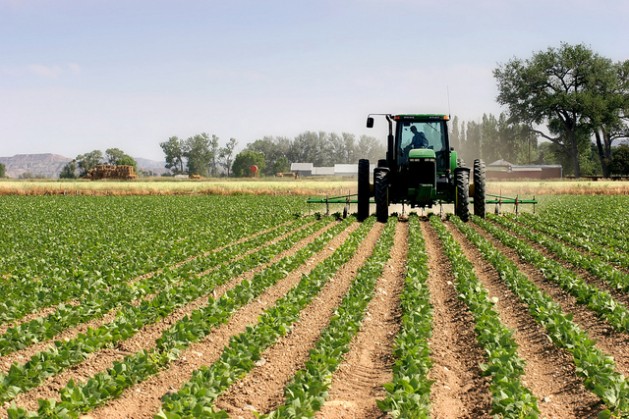From Interpress:
Industry analysts say the institutional share of U.S. farmland ownership is rising quickly. Credit: Bigstock
- An estimated 400 million acres of farmland in the United States will likely change hands over the coming two decades as older farmers retire, even as new evidence indicates this land is being strongly pursued by private equity investors.
Mirroring a trend being experienced across the globe, this strengthening focus on agriculture-related investment by the private sector is already leading to a spike in U.S. farmland prices. Coupled with relatively weak federal policies, these rising prices are barring many young farmers from continuing or starting up small-scale agricultural operations of their own.
In the long term, critics say, this dynamic could speed up the already fast-consolidating U.S. food industry, with broad ramifications for both human and environmental health.
“When non-operators own farms, they tend to source out the oversight to management companies, leading in part to horrific conditions around labour and how we treat the land,” Anuradha Mittal, the executive director of the Oakland Institute, a U.S. watchdog group focusing on global large-scale land acquisitions, told IPS.
“They also reprioritise what commodities are grown on that land, based on what can yield the highest return. This is no longer necessarily about food at all, but rather is a way to reap financial profits. Unfortunately, that’s far removed from the central role that land ultimately plays in terms of climate change, growing hunger and the stability of the global economy.”
In a new report released Tuesday, the Oakland Institute tracks rising interest from some of the financial industry’s largest players. Citing information from Freedom of Information Act requests, the group says this includes bank subsidiaries (the Swiss UBS Agrivest), pension funds (the U.S. TIAA-CREF) and other private equity interests (such as HAIG, a subsidiary of Canada’s largest insurance group).
“Today, enthusiasm for agriculture borders on speculative mania. Driven by everything from rising food prices to growing demand for biofuel, the financial sector is taking an interest in farmland as never before,” the report states.
“Driven by the same structural factors and perpetrated by many of the same investors, the corporate consolidation of agriculture is being felt just as strongly in Iowa and California as it is in the Philippines and Mozambique.”
As yet, the amount of U.S. land owned by private investors is thought to be relatively low. The report points to a 2011 industry estimate that large-scale investors at the time owned around one percent of U.S. farmland, worth between three five billion dollars.
Last year, however, another industry analyst put this figure at around 10 billion dollars, suggesting that the institutional share of farmland ownership is rising quickly.
“We’ve been seeing a decimation of the family farmer for a long time, but now these processes are accelerating,” Mittal says. “We need a tightening at the policy level before we’re swamped by these trends.”
Demographic collision
In the year after food prices suddenly rose in 2008, global speculation in land rose by some 200 percent. With the international financial meltdown coinciding almost simultaneously with this crisis, investors have increasingly viewed agricultural land as a relatively safe place to put their money amidst rising volatility....MORE
